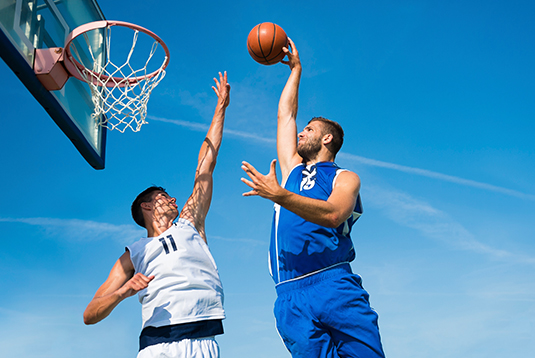
The Houston Rockets were supposed to be celebrating championship aspirations as the 2025-26 NBA season tips off this week. Instead, they’re facing significant adversity before the opening whistle even sounds. Two key players will be unavailable when the Rockets face the defending champion Oklahoma City Thunder on October 21, casting a shadow over what was otherwise a promising offseason.
Fred VanVleet: Season in Jeopardy
The biggest blow came in late September when the Rockets’ star point guard Fred VanVleet suffered a torn ACL during an offseason workout in the Bahamas. VanVleet underwent successful surgery on his ACL, but the injury could sideline him for the entire 2025-26 season.
Understanding ACL Tears
For basketball players, the ACL (anterior cruciate ligament) is critical for the rapid deceleration, cutting, and pivoting movements that define the sport. When this ligament tears, it creates instability in the knee joint that makes these movements impossible without surgical repair.
ACL reconstruction typically requires 9-12 months of recovery. The surgery involves replacing the torn ligament with a graft, followed by extensive rehabilitation focused on:
- Restoring range of motion
- Rebuilding quadriceps and hamstring strength
- Retraining proprioception (the body’s ability to sense joint position)
- Progressive return to basketball-specific movements
VanVleet averaged 14.1 points, 3.7 rebounds, and 5.6 assists last season, but his value extends far beyond statistics. He provides veteran leadership, defensive intensity, and the ball-handling that allows Houston’s young stars to flourish.
The Timeline Challenge
Even in optimal recovery scenarios, VanVleet faces significant hurdles. Point guards require elite explosiveness and cutting ability, the very movements most compromised after ACL reconstruction. Many athletes don’t return to their pre-injury performance level in their first season back, even if they’re medically cleared.
For the Rockets, this means potentially an entire season without their floor general during what should be their championship window.
Dorian Finney-Smith: Ankle Surgery Recovery
Adding to Houston’s injury woes, newly signed forward Dorian Finney-Smith is expected to miss games at the start of the season as he recovers from ankle surgery. Finney-Smith had surgery on his left ankle in June to address a lingering injury that had affected him for the last two years.
The Danger of Playing Through Pain
Finney-Smith’s case illustrates a common problem I see in my practice: athletes who tough it out when they shouldn’t.
As Finney-Smith admitted at media day, “I probably made the injury worse because I don’t want to sit down…I wish I’d had somebody just tell me to take it easy two years ago”.
This resonates deeply with sports medicine physicians.
The competitive mentality that makes athletes successful can also be their downfall.
Chronic ankle instability worsens over time without proper treatment, leading to:
- Cartilage damage
- Persistent inflammation
- Reduced performance
- Eventually, the need for more extensive surgery
Rockets coach Ime Udoka stated that Finney-Smith is cleared for limited on-court activities but will “probably not” be ready for the October 21 season opener.
The Ripple Effect on Houston’s Roster
The Rockets were one of the worst 3-point shooting teams in the league last season, a problem Finney-Smith was brought in to address after he shot a career-best 41.1% behind the arc. Now Houston faces the prospect of opening the season without two of its best perimeter shooters and defenders.
This places enormous pressure on young players like Reed Sheppard and Amen Thompson to accelerate their development. While both have significant potential, asking second-year players to fill the void left by an All-Star caliber point guard is a tall order.
Medical Perspective: Managing Expectations
From a sports medicine standpoint, both injuries require patience, something professional sports organizations struggle with. The pressure to return quickly is immense, but rushing either player back invites disaster:
For VanVleet: Returning before the knee is fully stable risks re-injury or compensatory injuries to other areas. The psychological component of trusting a repaired ACL in game situations is equally important as the physical recovery.
For Finney-Smith: Ankle surgery recovery varies widely depending on the specific procedure. If he had a lateral ligament reconstruction or addressed osteochondral defects, he may need 3-4 months to regain full explosiveness and confidence in cutting movements.
The Bottom Line
The Rockets’ early season injury situation demonstrates how quickly championship aspirations can be complicated by injury. While Houston has talented depth, losing your starting point guard to a season-ending injury and a key acquisition to ankle issues fundamentally alters team expectations.
For both players, the focus must remain on complete recovery rather than rushing back. VanVleet needs to rebuild his knee’s stability and explosiveness. Finney-Smith needs to finally address the chronic ankle instability he’s been fighting through for two years.
Whether you’re an NBA player or a weekend warrior here in Houston, the lesson remains the same: addressing injuries properly the first time saves you from more significant problems down the road.
Dealing with a nagging sports injury?
Don’t make the same mistake as Finney-Smith by playing through pain.
Schedule an appointment at my Houston sports medicine practice for expert evaluation and treatment that gets you back to your game safely.











